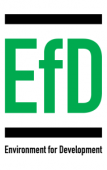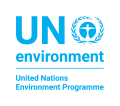Project Database


A growing number of African countries are amongst the fastest growing economies worldwide. Still the level and speed of lifting a vast majority of the African people from poverty remains low. A key question, therefore, is how the growth can transform the African economies towards efficient and competitive engines that...

UNDP established the Green Commodities Programme (GCP) in 2009, with the mission to transform agricultural production and trade around the world through multi-stakeholder collaboration and the establishment of effective national enabling environments in producer countries.
Agricultural commodities are the engine of economic growth in rural areas of emerging markets where...

The project “Enhancing South-South Cooperation – Building the Capacity of Developing Countries to Promote Green Economies” was based on the often-articulated wish of developing countries to exchange and share good practices with other countries of the South. The project had two key objectives. The first was to facilitate knowledge exchange...
The Natural Capital Coalition is running a project to draft a harmonised framework for valuing natural capital in business decision making to enable better measurement, management, reporting and disclosure. This is the Natural Capital Protocol (NCP). Funding for the project is provided in part by the Gordon and Betty Moore...

The objective of the West Bengal Accelerated Development of Minor Irrigation Project for India is to enhance agricultural production of small and marginal farmers in the project area. There are three components to the project. The first component is strengthening community-based institutions. This component will enable community-based institutions, mainly Water...
The Poverty-Environment Initiative (PEI) is a global programme that supports country-led efforts to mainstream poverty-environment linkages into national development and sub-national development planning, from policy-making to budgeting, implementation and monitoring. With both financial and technical support, PEI assists government decision-makers and a wide-range of other stakeholders to manage the environment...

The project supports the Uruguayan Environment Ministry in using the T21 model to analyse the national economy’s potential for green business activities. The modelling is being conducted for several key economic sectors: the meat and dairy industry, agriculture, fishing, tourism, transport and energy. The project is also providing training and...

Amongst others, the main achievements of the project: Policy, Macro-economic Assessments and Instruments to Empower Governments and Business to Advance Resource Efficiency and Move Towards a Green Economy include:
1) Global analysis using system dynamic modelling and sectorial analysis providing the economic case for investing in the sectors of agriculture...

Since 2012, the Bank has been providing technical assistance to its regional member countries for engaging on a green growth pathway. As part of this technical assistance project, the Sierra Leonean authorities requested the Bank to assist government officials and national stakeholders to consider key challenges and identify major opportunities...
